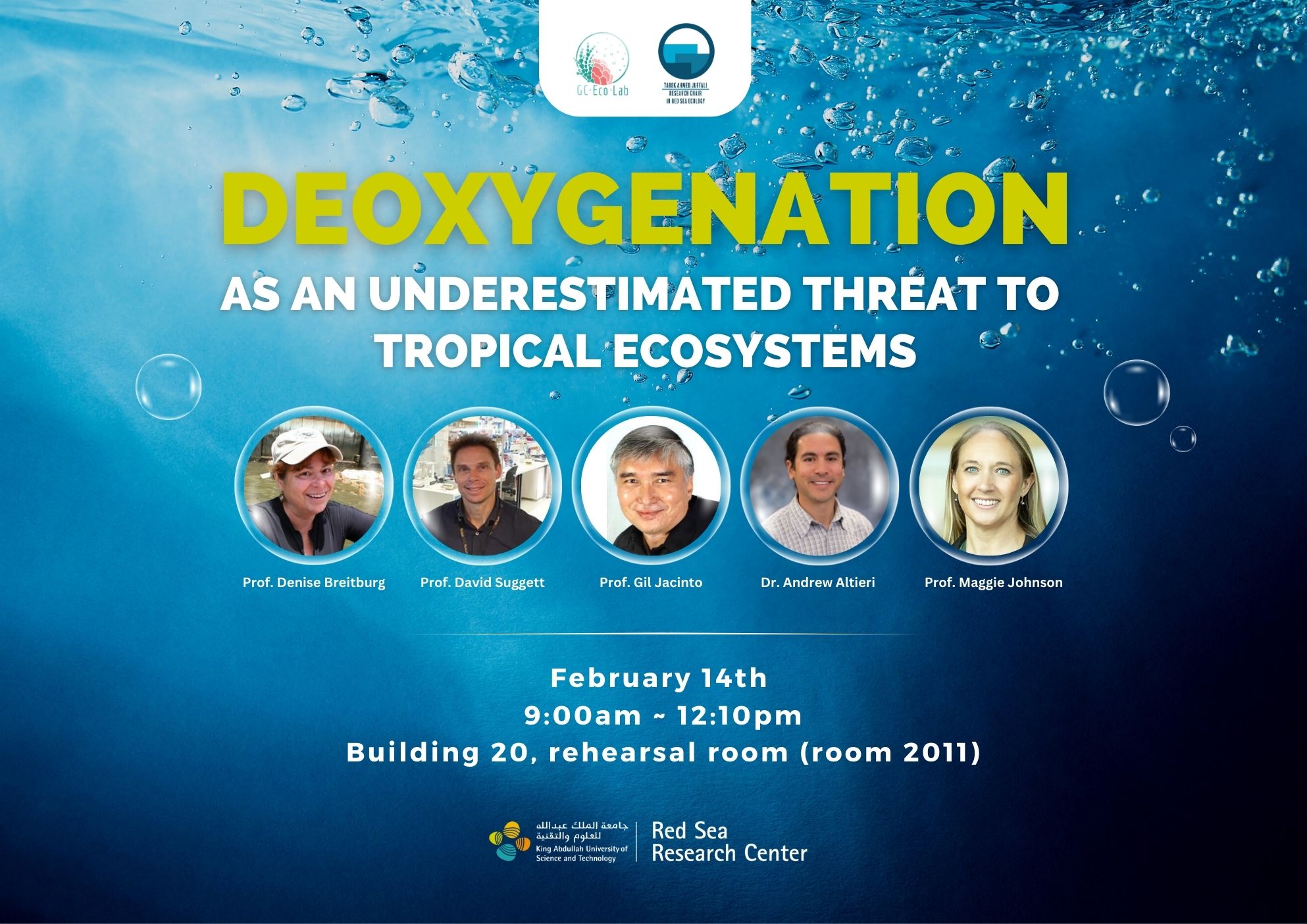



Though the impacts of deoxygenation have been well-studied in temperate regions, relatively few studies have explored changing oxygen dynamics and their impacts in the tropics. Evidence from cold water habitats illustrates how persistent and acute deoxygenation can decrease marine biodiversity, alter ecosystem dynamics, and potentially lead to ecosystem collapse. However, lessons learned from these well-studied regions may not translate to tropical habitats, including coral reefs, seagrass beds, and mangroves, and how they respond to deoxygenation. Inherent differences between temperate and tropical habitats, including warmer waters that have negative impacts on species living at the edge of their thermal threshold, indicate that responses to deoxygenation in the tropics could fundamentally differ from those in higher-latitude systems. In this workshop, we are convening experts in deoxygenation from around the world to explore thresholds of organismal tolerances to deoxygenation in the tropics.
| 9:10 - 9:40 | Ocean deoxygenation: The big picture and small time scales Prof. Denise Breitburg, Smithsonian Environmental Research Center, USA |
| 9:40 - 10:10 | Unlocking the vulnerability of reef-forming corals to deoxygenation Prof. David Suggett, KAUST |
| 10:10 - 10:40 | Coffee break |
| 10:40 - 11:10 | Unraveling deoxygenation in nearshore areas in Southeast Asia and environs Prof. Gil Jacinto, University of the Philippines |
| 11:10 - 11:40 | Patterns of coral reef resilience to ocean deoxygenation Prof. Andrew Altieri, Smithsonian Tropical Research Institute, USA |
| 11:40 - 12:10 | Differential susceptibility of coral reefs to deoxygenation events Prof. Maggie Johnson, KAUST |